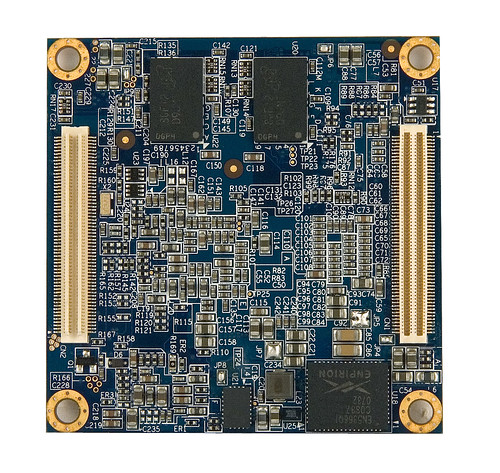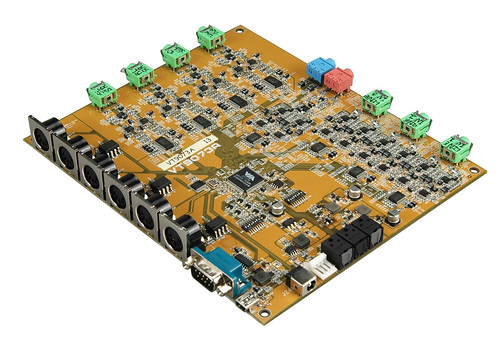
VIA has announced what is being dubbed the world's smallest computer on module. It uses the moniker of Mobile-ITX which was a business card sized complete platform when it was first announced some years ago. Now it's a 6x6cm square. The module itself sports a specially shrunken VIA Eden ULV processor, the new VX820 media system processor and 512MB DDR2 system memory. That square PCB is then plugged into a carrier board that looks to be around the size of a Pico-ITX board, via very thin connectors. The carrier board then sports whatever I/O a developer needs, including USB, audio and all sorts of display connector options. So at the end of the day, the system itself is not 6x6cm, it's more like a Pico-ITX size. The advantage, however, is that developers can custom design their own carrier boards with only what they need, and then plug in the Mobile-ITX module and end up with a complete tailor made embedded system. The Mobile-ITX module is called the EPIA-T700 and it's being targetted for use in medical, military and in-vehicle applications. With the ability to withstand 5Gs, it could even end up in air force equipment. - Press Release.
This VIA video shows off the Mobile-ITX in comparison to previous small form factors. Watch out for the prlonged blooper in the middle when he tries to plug the board in backwards! Editing anyone?!


